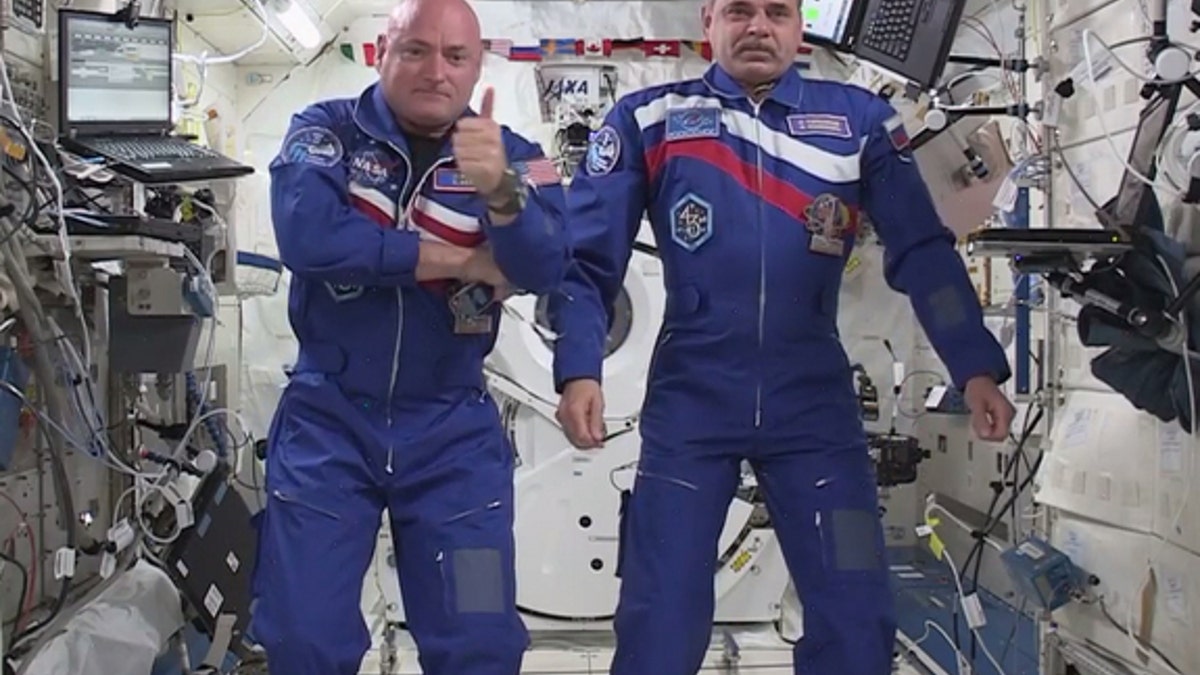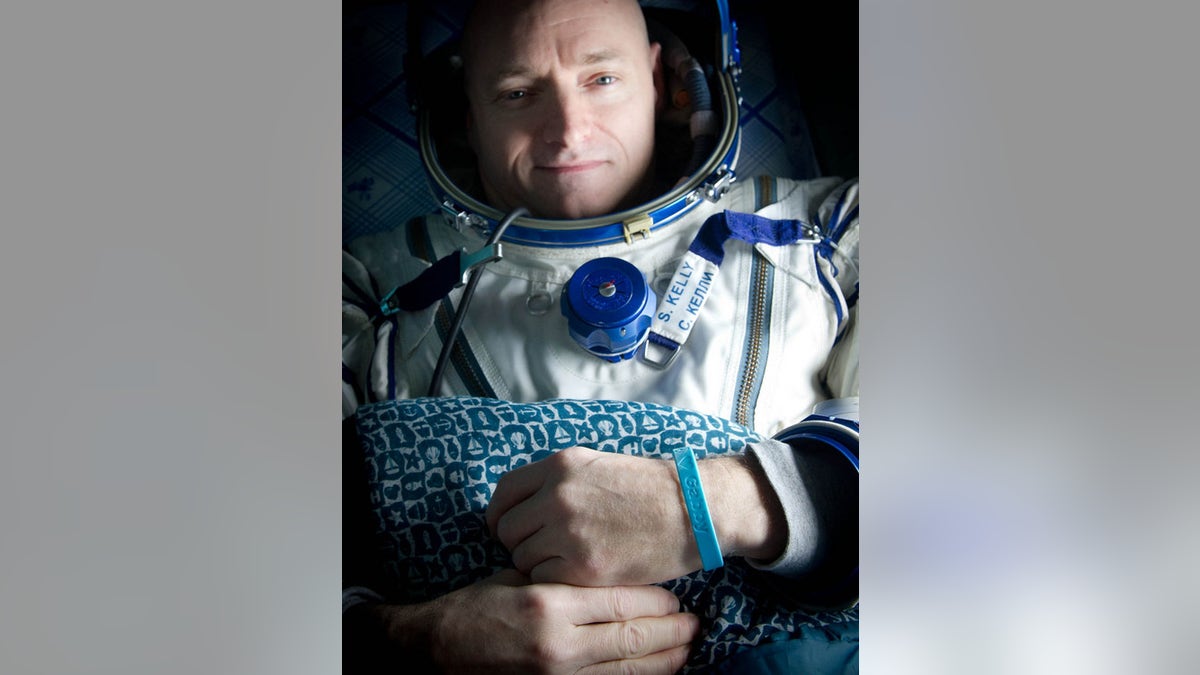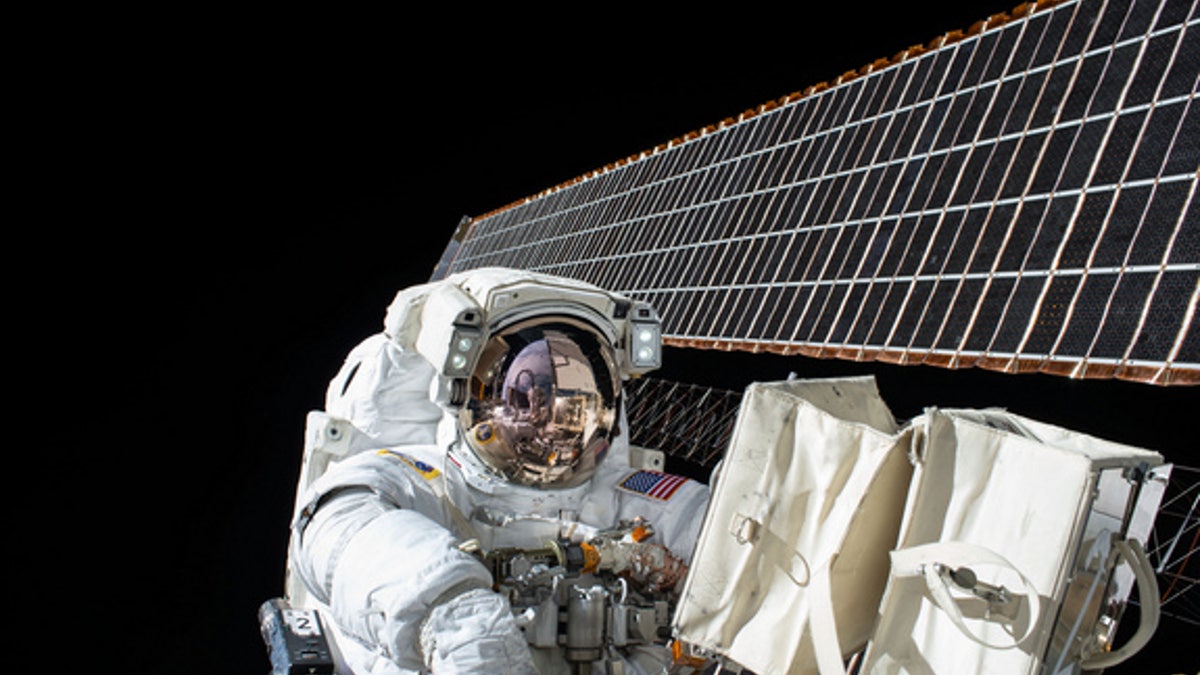Astronaut Scott Kelly addresses lack of confidence in science
Retired astronaut Scott Kelly and chemical engineer Jayshree Seth address the shocking statistic that almost 40 percent of people believe science doesn’t impact their lives.
Former NASA astronaut Scott Kelly says that he owes his storied space career to Tom Wolfe’s book “The Right Stuff,” which he read when he was 18.
Kelly, who read the novel while studying at State University of New York Maritime College in the Bronx, admits that he was a poor student until finding inspiration in the famous book about the early U.S. space program.
“It inspired me to become a fighter pilot in the Navy and, later, a test pilot, and, after that, an astronaut,” he told Fox News. “It just shows that with some inspiration and some hard work you can later achieve some pretty significant things.”
ASTRONAUT SCOTT KELLY BACK ON EARTH AFTER YEARLONG SPACE MISSION
After his selection by NASA in 1996, and over the next 20 years, Kelly served as a Space Shuttle pilot and commander and spent two stints on the International Space Station. In March 2016, at the end of an epic 340-day stay on the ISS, he became the first American to spend 12 consecutive months in space.

File photo - Scott Kelly and Russian Cosmonaut Mikhail Kornienko on the International Space Station (NASA TV)
The former astronaut is a spokesman for a global study commissioned by 3M that examines peoples’ attitudes toward science. The State of Science Index found that more than half of the respondents are skeptical or indifferent to science.
“This study shows that, despite overall interest in science, there are still people out there that have challenging views,” Kelly told Fox News. For example, 38 percent of respondents said that their everyday life would not be much different if science did not exist, a finding that Kelly described as “shocking.”
Kelly was compensated for his participation in the State of Science Index.
ASTRONAUT SCOTT KELLY: I COULD HAVE SPENT LONGER IN SPACE

Kelly had two stints on the International Space Station (NASA/Bill Ingalls)
Research firm Ipsos surveyed 14,036 adults in 14 countries between June 14, 2017 and August 26, 2017. Approximately 1,000 people were surveyed in each country, which included the U.S., Canada, the U.K., Germany, India, Japan and Brazil.
Sixty-six percent respondents to the survey said that they think about the impact of science on their everyday lives “a little to never.”
The study also found that more than one third of people are intimidated by science. Some 36 percent of respondents agreed that only geniuses can have careers in science, a statistic that Kelly finds particularly alarming.
“A lot of people think [that] to be a scientist you have to be a genius – I am here to tell you that that is not the case,” he said. “I was not a genius growing up – I was the kid that couldn’t do his homework, but I found this inspiration – 18 years later I was flying in space.”
SCOTT KELLY: YEAR IN SPACE PAVES THE WAY FOR EVEN LONGER MISSIONS

File photo of Scott Kelly during a spacewalk (NASA)
In total, Kelly spent 520 days in space during his NASA career and retired from the space agency in 2016.
The study reveals that science is underappreciated, with more than half of the respondents skeptical or indifferent to science.
Set against this backdrop, Kelly urged the next generation of scientists to find their niche. “The most important thing is to find the thing that interests you, that excites you, because if you’re interested and excited in something, you do better at it,” he explained. “It’s also important for kids out there to know that science is what is going to allow us to accomplish the challenges that we all are going to experience in the future with a growing population on the planet.”
SPACE FLIGHT CHANGES ASTRONAUTS' BRAINS, RESEARCH REVEALS
Despite some skepticism and indifference toward science, there is excitement about future scientific advancements, according to the study.
When asked what science will achieve in their lifetime, 64 percent of respondents said robots will be in every workplace. Some 55 percent of those surveyed said that they expect to see robots in every home and 51 percent anticipate flying cars. Additionally, 41 percent cited their expectations for undersea living and 35 percent for inhabiting Mars during their lifetime.
The research also highlighted a gender gap in science, with women less engaged with and interested in science than men. Women are more likely than men to say that they know nothing about science (21 percent vs. 15 percent) and are much less likely to see a career in engineering as satisfying (9 percent vs. 25 percent).
However, women expressed more interest in medicine (20 percent vs. 14 percent) and life science (15 percent vs. 10 percent) than men.
SOLAR ECLIPSE, CRASHING SPACECRAFT, VOLCANOES AND MORE: BIGGEST SCIENCE STORIES OF 2017
Follow James Rogers on Twitter @jamesjrogers









































